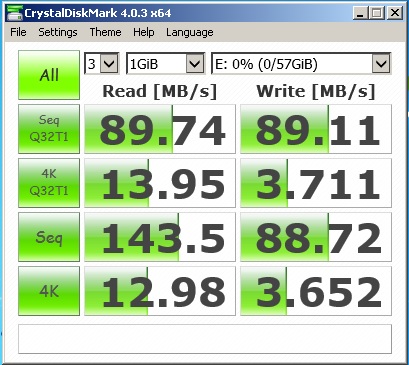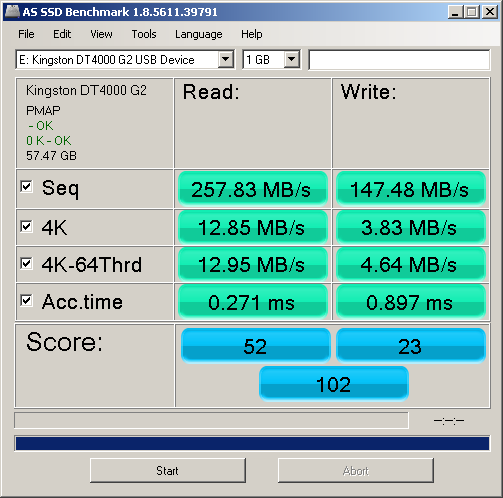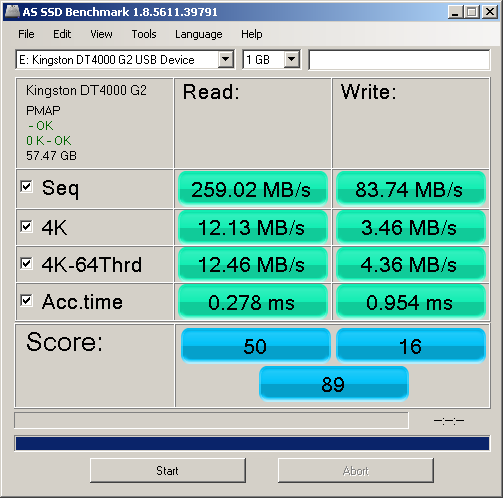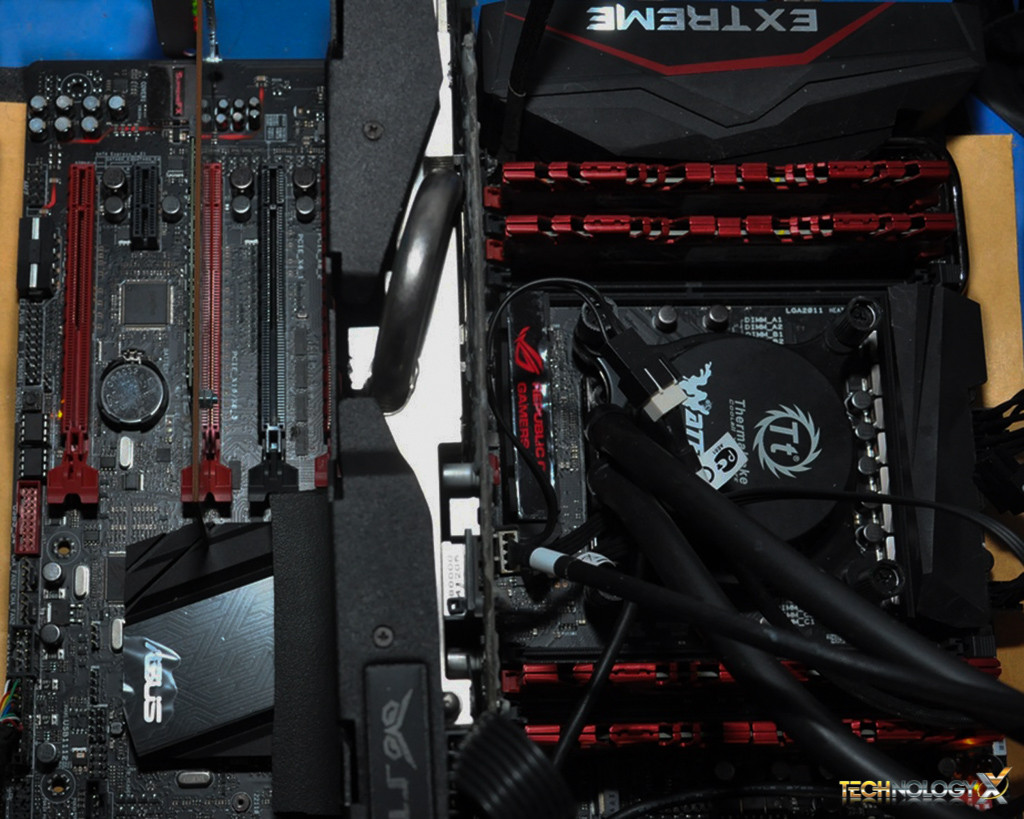TECHNOLOGY X TESTING PROTOCOL
Here at Technology X, we test our storage devices using certain benchmarks. The benchmarks chosen are more synthetic, but you can still get an idea on the drive’s performance. One thing to note is that our system has been optimized with our SSD Optimization Guide giving our system a nice boost in performance.
As we use this specific Test bench for Liquid Nitrogen testing (LN2) it is being shown with its components laid out on a table, vice in a system as we might normally display.
| CHASSIS: | N/A |
| CPU: | Intel Core I7-5960X |
| COOLING: | Thermaltake Water 3.0 Extreme |
| MOTHERBOARD: | Asus Rampage V Extreme |
| RAM: | G.Skill Ripjaws 4 3000MHz 16GB DDR4 |
| GRAPHICS: | Asus GTX 980 Strix |
| SSD: | Plextor M6e PCIe 128GB |
| PSU: | Seasonic Platinum SS-1200XP3 1200W |
ATTO Disk Benchmark is perhaps one of the oldest benchmarks going and is definitely the main staple for manufacturer performance specifications. ATTO uses RAW or compressible data and, for our benchmarks, we use a set length of 256mb and test both the read and write performance of various transfer sizes ranging from 0.5 to 8192kb. Manufacturers prefer this method of testing as it deals with raw (compressible) data rather than random (includes incompressible data) which, although more realistic, results in lower performance results.

From the results we can see that the flash drive hits above the specified read at the 64KB mark by a nice margin and from there holds relatively steady. Writes reach just above the specification at the 8KB mark and hold relatively steady as well.
CRYSTAL DISK BENCHMARK VER. 4.03
Crystal Disk Benchmark is used to measure read and write performance through sampling of random data which is, for the most part, incompressible. Performance is virtually identical, regardless of data sample so we have included only that using random data samples. Further, we are using the newest release of CDM where the queue depth, and even thread count, can be set.

This test shows a drop in reads compared to the other tests we have done whilst writes are similar in sequential. The results are nothing special other than giving us an idea of the flash drives specification.
The toughest benchmark available for solid state drives is AS SSD as it relies solely on incompressible data samples when testing performance. For the most part, AS SSD tests can be considered the ‘worst case scenario’ in obtaining data transfer speeds and many enthusiasts like AS SSD for their needs.

As seen here the flash drive hits around the manufactures specifications of 250MB/s Read and far greater than the specification at 150MB/s write which the specification is 85MB/s. This was the first run after we followed the setup process which was surprising thus why I am showing this result.

Testing from here on writes has dropped to around the specifications of 85MB/s whilst no changes in settings have been made in BIOS, Windows, and testing software. This is always nice to see that the specifications are met or even beaten. The first run where writes topped at 147MB/s was exciting as seen but around the 85MB/s in benchmarks is what you would really expect to see.
Review Overview
Build Quality
Design
Appearance
Pricing & Availability
Warranty
Security for a price
The Kingston DataTraveler 4000 G2 64GB flash drive offers nice performance as well as security features. Pricing seems a bit high for such a flash drive but that's what you pay for to have peace of mind when it comes to your data.
 Technology X Tomorrow's Technology Today!
Technology X Tomorrow's Technology Today!

